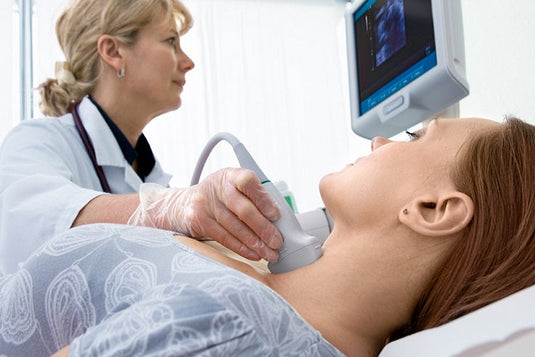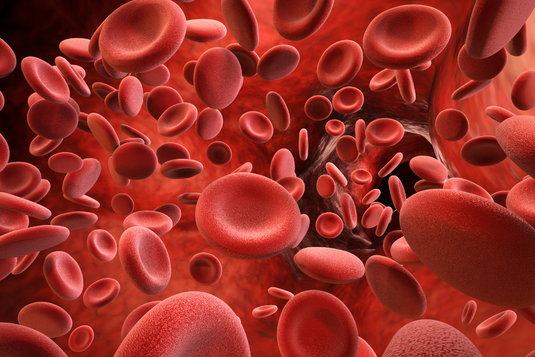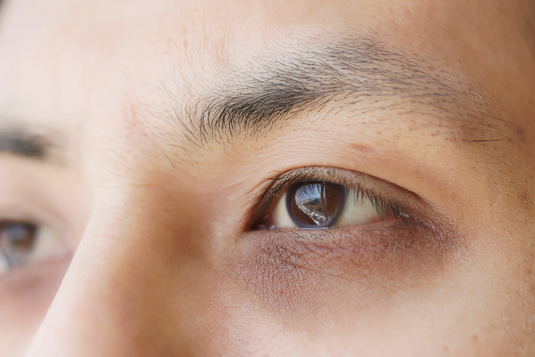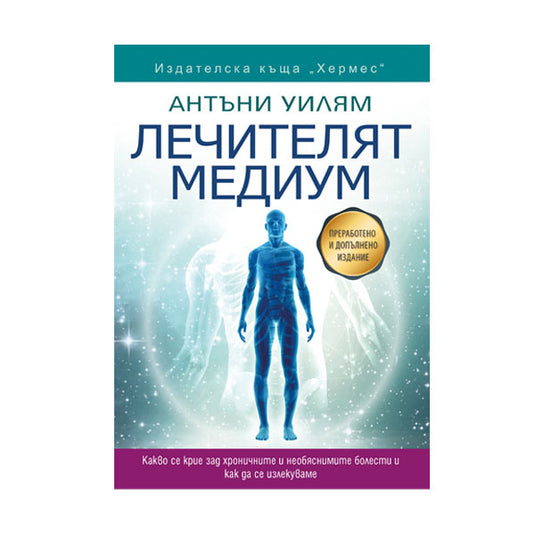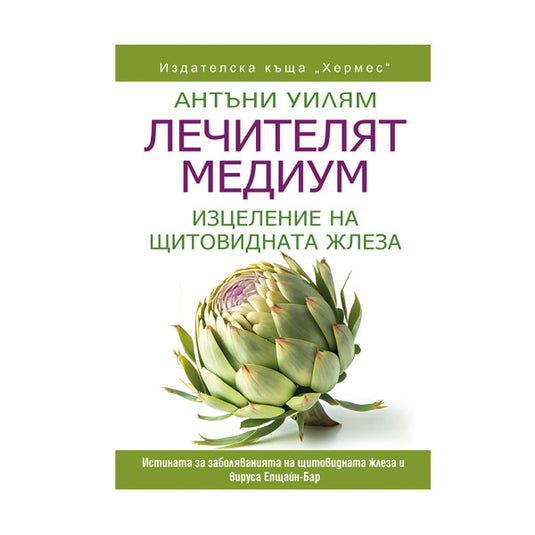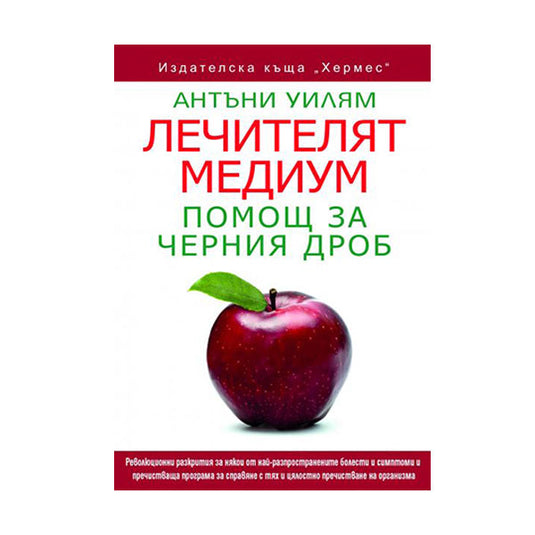For decades, women have fought to be heard about their symptoms.
The process has not been easy. For a long time, they have been forced to believe that many of the health challenges we have discussed in our articles on thyroid disease are just in their heads. It is only when the medical community begins to recognize thyroid problems as widespread that testing for these problems reaches mainstream medicine. This offers much-needed confirmation to many patients, who finally receive proof with test results that there is something wrong with their bodies.
On the other hand, what happens if you're one of those women (or men) whose test results are "normal"? There's a long-standing practice where general practitioners determine thyroid health by a patient's TSH (thyroid-stimulating hormone, also called thyrotropin) levels. They want to see that these values are in the normal range of 0.5 to 5.0, and if they are, then these doctors are guided by what they've been taught, which is that the patient's thyroid is fine. It can be extremely frustrating to hear that everything looks fine when you know something is wrong.
There are now doctors who are trying to do a more thorough job of testing for thyroid problems. They see a lot of patients whose TSH levels are normal despite a number of symptoms that seem to indicate otherwise, so they try to get a more complete picture of the thyroid by testing both free T4 and free T3 thyroid hormones. Because of this, women are taken more seriously these days than they used to be.
Even with this development, however, we are stuck in the phase of choosing outdated thyroid tests because every thyroid test is built on the outdated assumption that the problem with people’s health is a diseased thyroid. And as you well know by now, a problematic thyroid is not the problem itself. It is an indication of something much bigger: the Epstein-Barr viral load. If the latest information you hear or read somewhere claims otherwise, the source you have chosen is out of date and should be considered a throwback to the dark ages or even the time of the dinosaurs and a relic of outdated thinking.
Until the medical community realizes that EBV is the real culprit in thyroid problems, and not just a sidekick to other factors mistakenly thought to be driving people’s ill health, thyroid tests will remain of limited use. Even if new, revolutionary thyroid tests emerge, and they will, they won’t be enough. Medical research can come up with the best, most advanced methods for checking thyroid function and still miss the point. What doctors and labs really need are more sophisticated EBV tests—tests that track where the virus is in a person’s body, its path through the body, its levels in various organs and glands, and how it feeds and mutates.
So the premise of testing thyroid hormone production, by itself, is no longer valid. These tests mislead healthcare professionals and patients by making everyone focus on one effect of the virus (thyroid damage) rather than the much bigger picture that it is a virus that is causing this damage and simultaneously wreaking havoc on other parts of the body. For this reason, we will not go into depth about the various tests.
Thyroid hormone tests
However, tests like T4, T3, and thyroid-stimulating hormone (TSH) are what we have now, and they are pieces of the puzzle. If you get test results that show abnormalities in your thyroid function, and you and your doctor interpret them with the mindset that they are indicators of a virus affecting your thyroid, rather than your thyroid being weak and failing you, then they can point you in the right direction.
As we've explained, many resourceful doctors and patients have begun to notice that these tests can show normal results even when all other signs point to something amiss. And because the accuracy of these blood tests is unfortunately inconsistent, Anthony William calls them "predictive tests." For starters, thyroid hormone readings can fluctuate widely depending on the time of day and the patient's stress level. This is much like the "white coat syndrome" that many people experience when they walk into a doctor's office and have their blood pressure measured. Just sitting under observation can cause sweaty palms and blood pressure to rise above normal levels, which can distort the accuracy of the reading.
Similarly, if you are sitting in the lab or exam room having your blood drawn, it can cause your adrenal glands to go into overdrive, completely changing the chemistry of your blood as adrenaline (also known as epinephrine) and cortisol (also known as hydrocortisone) suddenly flood your bloodstream in preparation for a crisis, disrupting homeostasis. These high levels of adrenaline and cortisol can make a blood test look like you are producing more than enough of the thyroid-related hormones T4, T3, and TSH—whether you actually are or not. Or, the adrenaline and cortisol can overwhelm your brain and overstimulate the pituitary gland that produces TSH, which can again throw your blood test results off-target.
Even if the sight of a needle doesn't bother you at all, disruption of homeostasis can affect the chemistry of your blood. If you're someone who experiences chronic stress, you may live with constantly elevated levels of adrenaline and cortisol, or, as we discussed earlier, your levels may be high to compensate for an underactive thyroid, or you may have adrenal fatigue. With adrenal fatigue, your adrenal glands may produce adrenaline and cortisol erratically, sometimes flooding your bloodstream with it and sometimes holding it back. In this case, your adrenal glands may be overactive when they draw your blood, even if the doctor's office is your favorite place in the world, and so the results may again be inaccurate.
There are cases of patients who have a thyroid blood test one week, then return the next week to have their blood tested for another purpose, and the thyroid profiles on the two tests come up with completely different values. Judging from just one thyroid test is too limiting. This means that doctors can unknowingly miss whether a patient has thyroid disease. With blood pressure, many doctors and nurses have learned that the best way to deal with inaccurate measurements is to take several blood pressure readings in one appointment and average them. A similar approach would also help with thyroid testing, although in reality, it is necessary to take a thyroid test once a day for 30 days and then average them at the end of the month.
This would be more helpful, although it still wouldn’t solve everything, because the tests themselves are outdated. We have hope that in a few decades the medical community will finally realize the true, viral cause of thyroid disease, and the tests will be better. Until then, medical professionals and patients will be dealing with thyroid tests that are too broad in scope and don’t take into account the subtle hormonal changes that can signal thyroid disease. Thyroid hormone “predictive tests” are so inaccurate that it would almost be more accurate to clench your fist for 10 seconds, release it, and see if it takes more than three seconds for the color of your palm to return, indicating a thyroid problem.
Millions of women are unknowingly walking around with hypothyroidism that wouldn't register on today's tests. Sometimes it takes months or years of living with an underactive thyroid to develop to the point where the lab can detect it. In the meantime, one has to live with deteriorating health and no answers as the virus progresses. On the other hand, we can pretend that everything is fine, but that won't help anyone.
None of what we've discussed so far means you should forgo thyroid testing. You just need the above information to be able to interpret the results with perspective. If you're going in for a thyroid test, ask to have TSH, free T4, free T3, and thyroid antibodies tested.
The reverse T3 (rT3) test is a fad right now that's not worth getting hung up on. While it does pick up on real problems, it can pick up so many at once that it can be hard to understand what each result means. It's a good idea to have your doctor order the test, but it may not help you determine your condition with any degree of certainty.
Thyroid antibody tests
Thyroid antibody tests deserve special attention because of all the thyroid tests, they come closest to detecting viral activity. Again, it all depends on your perspective. The medical community currently believes that the antibodies found in these tests are autoantibodies (also called antithyroid antibodies and antimicrosomal antibodies)—that is, antibodies that your immune system makes to attack your own thyroid tissue. The antibodies are taken as evidence that your body is attacking your thyroid, which is why you are diagnosed with autoimmune disease. In reality, that is not the case. This interpretation is based entirely on conjecture. When scientists first discovered antibody activity and couldn’t figure out why it was happening, it was a convenient theory to say that the body was clearly malfunctioning. The problem is that neither conventional nor alternative medicine has yet to abandon this theory. It remains an immature science.
Remember, your body isn't just attacking itself. The antibodies that show up on tests like the thyroid peroxidase (TPO) test are actually your saving grace. They don't go after your thyroid, they don't cause damage to the gland at any level. These antibodies are created by your immune system to target the real problem: EBV .
Part of what confuses the medical community is that medical research and science have yet to discover the individual immune system of the thyroid gland, which we have discussed in the articles on thyroid diseases . The specialized lymphocytes that we have talked about and which have not yet been cataloged are distributed throughout the thyroid area, like soldiers guarding it. Although they are temporarily taken away from the thyroid gland during the transition from stage two to stage three, the thyroid gland – a highly intelligent gland – sends an emergency signal for the specialized lymphocytes to return as soon as it realizes that it is under attack. Once they return, the lymphocytes work in symbiosis with the antibodies that your immune system produces, allowing those antibodies into the thyroid gland so that they can attack the EBV there and get it out of your body. The confusion here is that the medical community, seeing the activity of the antibodies, thinks that must be the source of the problem. This is completely wrong. Your special lymphocytes and these antibodies work together to protect you.
So when you look at the results of any thyroid antibody test, remember that if antibodies are present, they are due to viral activity in the thyroid, not a misfire from your body. If antibodies are not present, it does not mean that EBV is not present in the thyroid. Like the others, this is a test that is still being refined. Unlike thyroid hormone tests, it is not blood chemistry that can confuse antibody tests. The weakness of antibody tests is more that they are not yet broad or sensitive enough to detect smaller amounts of antibodies. When EBV is early in the thyroid, your immune system has not yet used all of its alarm bells, so the antibody activity may not be enough to register in the lab tests.
There are also so many variants of EBV , and mutations continue to evolve, and this diversity means that there is also diversity in the possible reactions and antibody formations they trigger, with some antibodies targeting those mutations that are not in the blood labs' sights. Current tests only detect some of these reactions and formations, or to put it simply: you may have antibodies in your body that the test results don't show. These are variants of antibodies that are literally "off the charts" because they are uncharted territory - they haven't been discovered, so blood labs don't look for them. If a blood lab doesn't know that an antibody exists, it won't be tasked with looking for it. It takes funding and permission to look beyond the known, although you probably don't need us to teach you about the bureaucracy and regulations. We're sure you're familiar with them one way or another.
Your own thyroid expert
Given that these scientific diagnostic methods are still in development, when it comes to determining whether you have thyroid disease, you need to become your own best expert. If your test results don't give you any clues, know that if you're experiencing any of the late-stage symptoms we've covered in our thyroid disease articles , they could be a major indication that your thyroid has already been targeted by EBV and continues to be affected even as EBV progresses in your body.
Above all, remember that your thyroid is just one part of what’s going on with your health. While all the medical attention to thyroid testing may seem to suggest otherwise, and past test results may have made you feel like you’re either making up a problem or that your thyroid is in terrible shape and you’re to blame, don’t let that get you down. Today’s “predictive” thyroid tests aren’t ultimately meant to get to the root of your health problem and offer you answers. They’re meant to determine whether someone should start taking thyroid medication—a topic we’ll cover in a separate article.
The article uses materials from Anthony William's book "Healing the Thyroid Gland" . More articles on the topic are coming soon to our blog!
Other articles about the thyroid gland:
“The truth about the thyroid gland” ;“Thyroid Diseases – How It All Begins” ;
“Thyroid Diseases – Explaining Your Symptoms (Part 1)” ;
“Thyroid Diseases – Explaining Your Symptoms (Part 2)” ;
“Thyroid Diseases – Explaining Your Symptoms (Part 3)” ;
“Thyroid Diseases – Additional Complications (Part 1)” ;
“Thyroid Diseases – Additional Complications (Part 2)” ;
“Thyroid cancer” ;
“[Video] Do you have Hashimoto's thyroiditis? – Anthony William speaks” ;
“Anthony William on insomnia and sleep problems in thyroid diseases” ;
“Anthony William's Tips for Treating Sleep Problems and Why Bad Dreams Are Good” ;
“Why are women more susceptible to thyroid diseases” ;
“Healer Medium's 90-Day Thyroid Therapy (Part 1)” ;
“Healer Medium's 90-Day Thyroid Therapy (Part 2)” ;
“Anthony William on Thyroid Medications” ;
“Anthony William on life without a thyroid gland” ;
“Anthony William reveals the truth about iodine” ;
“Anthony William reveals the truth about zinc” ;
“Powerful Healing Foods for the Thyroid” ;
“Which foods to avoid with thyroid diseases” ;
“Herbal remedies and nutritional supplements for the thyroid gland” ;
“How celery juice helps with thyroid diseases” ;
“Tea for treating the thyroid gland” ;
“Leben Broth for the Thyroid” ;
“Healing juice for the thyroid gland” ;
“Healing smoothie for the thyroid gland” .
